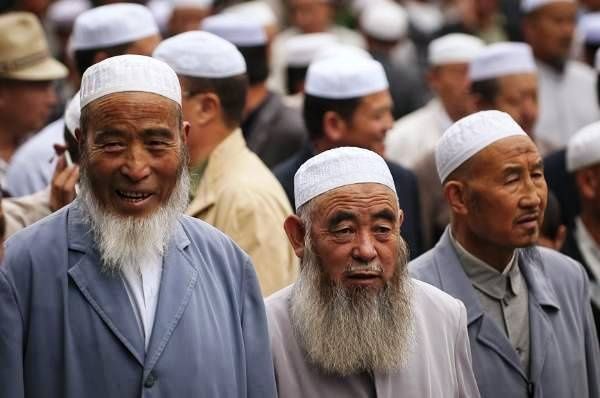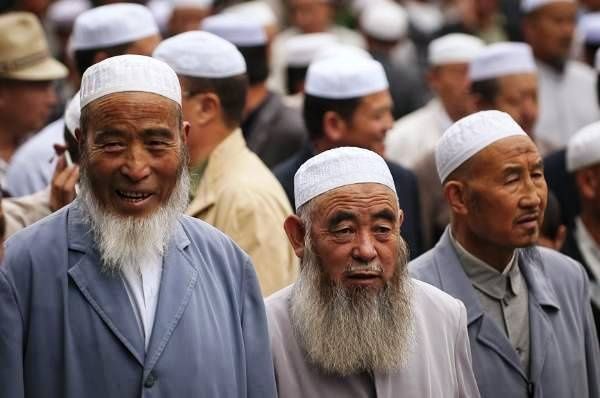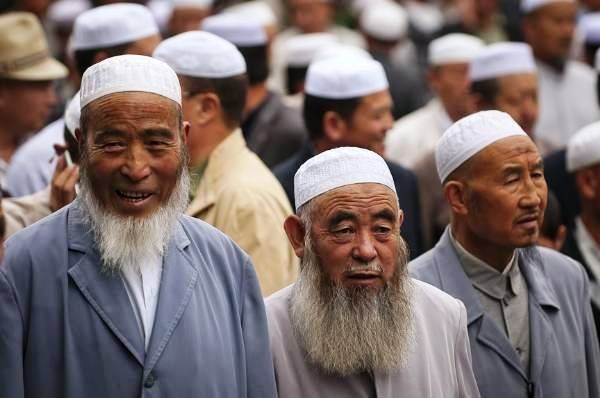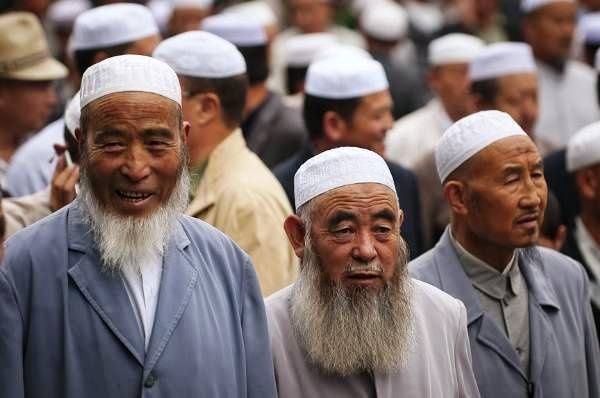Comparative Muslim Societies Program
Global Hubs Grant Launches AI Collaboration

Call for Proposals Open Now
Isabel Perera (IES) and international partners are investigating AI's impact on workplaces. Apply now for the next round of Hubs seed grants.
Additional Information
Information Session: Foreign Language and Area Studies (FLAS) Fellowships and Rare and Distinctive (RAD) Language Fellowships

November 12, 2024
5:00 pm
Uris Hall, G08
If you love languages, our funding opportunities are for you! Learn one of more than 50 languages offered at Cornell with a Foreign Language and Area Studies Fellowship or Rare and Distinctive Language Fellowship. Opportunities are open to both undergraduate and graduate students.
FLAS fellowships support students studying modern South Asian and Southeast Asian languages and related area studies. Funding is offered in collaboration with the Einaudi Center’s South Asia and Southeast Asia Programs.
RAD fellowships support students studying modern languages that are less frequently taught in the United States. Funding is offered by the Einaudi Center for intensive summer language study.
Can't attend? Contact flas@einaudi.cornell.edu.
***
The Mario Einaudi Center for International Studies hosts info sessions for graduate and for undergraduate students to learn more about funding opportunities, international travel, research, and internships. View the full calendar of fall semester sessions.
Additional Information
Program
Einaudi Center for International Studies
Reppy Institute for Peace and Conflict Studies
Comparative Muslim Societies Program
East Asia Program
Southeast Asia Program
Latin American and Caribbean Studies
Institute for African Development
Institute for European Studies
South Asia Program
Migrations Program
Information Session: Graduate Opportunities

November 4, 2024
5:00 pm
The Mario Einaudi Center for International Studies funds international graduate student research!
Research travel grants provide international travel support for graduate and professional students to conduct short-term research or fieldwork outside the United States.
Global PhD Research Awards fund fieldwork for 9 to 12 months of dissertation research.
Register for the virtual session.
Can’t attend? Contact einaudi_center@einaudi.cornell.edu.
***
The Mario Einaudi Center for International Studies hosts info sessions for graduate and for undergraduate students to learn more about funding opportunities, international travel, research, and internships. View the full calendar of fall semester sessions.
Additional Information
Program
Einaudi Center for International Studies
Reppy Institute for Peace and Conflict Studies
Comparative Muslim Societies Program
East Asia Program
Southeast Asia Program
Latin American and Caribbean Studies
Institute for African Development
Institute for European Studies
South Asia Program
Migrations Program
The World’s Largest Stateless People, and the Rhetoric of Victim-Blaming Muslims in Myanmar (Burma)

December 5, 2024
4:30 pm
Uris Hall, G08
Talk by Al Haj Khalifah U Aye Lwin (Religions for Peace Myanmar, Masjid Sujud Shah Utica NY)
Myanmar has a track record of forging unity in multiplicity, and Muslims have been an integral part of Myanmar society since the Pagan dynasty. Rohingyas were, in fact, prominent citizens, just like other Myanmar Muslims from different origins. They were recognized as full-fledged Myanmar citizens even by the military before the coup. However, when the entire nation started to oppose despotic military dictatorship, the junta projected Islam as a danger to Burmese nationalism. Myanmar Muslims became soft targets and easy prey. Rohingyas were the hardest hit among the Myanmar Muslims. Their citizenship was stripped off, and tens of thousands of them were hounded out of the country. Genocide and ethnic cleansing were the order of the day. Rohingyas are targeted as a danger to Burmese Buddhist nationalism by the military, and native, often pious Myanmar Buddhists who have (often) been brainwashed and indoctrinated to hate them. Multifaith leaders in Myanmar were trying to alter the stereotyped rhetoric with the help of broad-minded leaders when the country was faced with yet another military coup. Nevertheless, faith-based leaders in Myanmar are determined and will continue to strive toward achieving this endeavor.
Additional Information
Program
Einaudi Center for International Studies
Comparative Muslim Societies Program
Southeast Asia Program
From Baghdād to Baghpūr: Global Blackness in Medieval Arabo-Asia

November 11, 2024
4:30 pm
Uris Hall, G08
Talk by Guangtian Ha (Religion, Haverford College)
This talk draws from a book manuscript of the same title under preparation for Columbia University Press. Weaving together sources in classical Arabic, Persian, Chinese, and Bahasa Indonesia/Malay, and combining an array of methodologies from historiography to literary criticism to ethnography, From Baghdād to Baghpūr aims to excavate or reimagine a premodern global – global as in across the Indian Ocean, tying East Africa, Arabia and Persia to South, Southeast and East Asia (the problematic nature of these geographical terms is not lost on the present author) – history where multiple regimes of racialization overlap and heterogeneous conceptions of Blackness intersect. The majority of the sources the book draws on are from late antique and medieval times – if one is to adopt, not without misgivings, European historiographical terms for periodisation. By examining entangled histories and listening to entwined tongues, From Baghdād to Baghpūr asks if there could be a space where an inchoate premodern history is possible of a certain “Black Pacific” that predates modernity yet lays the ideational, if not also the political and economic, foundation for the rise of the Black Atlantic in later times. In this presentation, I will first lay out the general framework of the book, clarify a few key concepts whose theoretical articulations remain (constructively) disputed within Asian studies and medieval studies, and offer several concrete examples to demonstrate the kinds of sources I utilize for the project and the manner whereby I approach them. I aim less to draw definitive conclusions than to open up new avenues of research and new spaces for alternative imaginations.
Additional Information
Program
Einaudi Center for International Studies
Comparative Muslim Societies Program
Dreams of a Muslim World: Twentieth Century Muslim American Mappings

October 21, 2024
4:30 pm
Uris Hall, G08
Talk by Yasmine Flodin-Ali (Religious Studies, University of Pittsburgh)
Twentieth-century Muslims used Islam to articulate resistance to systems of domination, from British colonial rule in India to Jim Crow laws in the United States. This article maps the moral geographies promoted by three early twentieth-century Muslim American movements: the Moorish Science Temple of America, the Ahmadiyya Muslim Community, and the Islamic Mission of America. Despite stark differences between these groups— the MSTA had their own version of the Qur’an, the Ahmadiyya began as a minority theological movement in South Asia, and the Islamic Mission was a Sunni group— they all appealed to an imagined, unified Muslim world, through which an all-encompassing Muslim identity would solve the problem of racial inequality. Imagining a more just world meant investing in sacred spaces, from establishing mosque spaces to theorizing cities such as Chicago and New York as Mecca to idealizing Asia and Africa as homelands, connective nodes of Islamic civilization and liberation.
Additional Information
Program
Einaudi Center for International Studies
Comparative Muslim Societies Program
Jihad as a Symbol of Legitimacy and Authority in the Sudan

September 30, 2024
4:30 pm
Uris Hall, G08
Talk by Kim Searcy (History, Loyola University Chicago)
I will focus on the Sudanese Mahdiyya- 1885-1898. I will analyze how second-in-command, the Khalifa Abdallahi used Jihad as a symbol to articulate, their power, legitimacy, and authority, initially within the context of their war with the Turco-Egyptian forces and then within the context of establishing an Islamic state. The Turco- occupying the Sudan since 1821, and the Sudanese holyman, Muhammad Ahmad al-Mahdi declared a Jihad to end the occupation. Following the defeat of the Turco-Egyptian forces in 1885, the Mahdi's goal was to establish an Islamic state and continue the militant struggle throughout the Muslim world.
Additional Information
Program
Einaudi Center for International Studies
Comparative Muslim Societies Program
The Question of Treason: Just Rebellion and Colonial Law

November 25, 2024
12:15 pm
Uris Hall, G08
Talk by Bhavani Raman (History, University of Toronto)
The laws that authorize modern state impunity, such as martial law, sedition, disturbed areas, and preventive detention, were first given statutory authority by a colonial corporation, the East India Company consolidating its conquest of India. Why was this the case and why has this history been forgotten by historians of law, colonialism, and South Asia? While the British East India Company's conquest of India through techniques of pacification, property rights, and culturally inflected governance are well-documented, it is less widely known that it was unable to successfully define treason through its entire existence. My paper recounts this history, focusing in particular on the Company criminal legal system which was predicated on Islamic legal principles. Islamic legal practitioners in these courtrooms challenged the Company’s desire to punish treason with death, thereby challenging the colonial regime's claims to sovereignty and plunging it into periodic crises. The Company responded by installing the statutory foundations of emergency and state security. Yet its inability to sufficiently define treason has left us a prism of legal debate and an unfinished state authority through which to understand the present and the past of the relationship between right to rebellion and racialized state violence.
Additional Information
Program
Einaudi Center for International Studies
Comparative Muslim Societies Program
South Asia Program
The Socio-Economic History of the Parsis in Gujarat, c.17th to 19th Centuries

October 7, 2024
12:15 pm
Uris Hall, G08
Talk by Kaveh Yazdani (History, University of Connecticut)
How, when, and why did the Parsis of Gujarat become among the foremost brokers and entrepreneurs in 18th -and 19th-century India? What are the different phases of their ascendancy and success, especially concerning their socio-economic activities in Gujarat? In order to shed light on these questions, first, I briefly touch upon the early history of Zoroastrians in Gujarat, including their socio-economic activities between the 10th and 17th centuries. Then, I shortly examine some of the devastating effects of the famine of 1630-31. The main focus, however, is on the socio-economic rise of the Parsis in Gujarat between the late 17th and 19th centuries, including some of the tensions that ensued from within and without their community. Lastly, I also discuss some of the negative views circulating about Parsis in the late 18th and early 19th centuries through the examples of Joseph Tieffenthaler (1710–1785) and Abu Taleb (1752–1806).
Additional Information
Program
Einaudi Center for International Studies
Comparative Muslim Societies Program
South Asia Program
A Farewell to Arms: Political Economy of Arms Trafficking in the Golan Heights, 1880-1918

September 16, 2024
4:30 pm
Uris Hall, G08
Talk by Ayse Polat (Mellon Postdoctoral Fellow, Cornell Society for the Humanities Cambridge University, PhD)
How do the circulation and distribution of arms shape social relations, conflicts, and hierarchies? Is arms trafficking a means of contesting the established order of things, or cementing it? This paper discusses the Ottoman government’s dis/armament of Circassian settlers - muhajirin - in the Golan Heights. The arrival of Circassian refugees in the Golan marked an expansion of Ottoman settlement policy to Syria in 1878. From thereon, growing refugee settlements constituted an experiment in settler capitalism that reshuffled the ethnic and religious composition of the region. The settlers instituted and expanded a new regime of private property and agrarian production, predicated on the exclusion of their neighbors and exploitation of their slaves. The exclusivity and inviolability of settlers’ property engendered conflict within and outside of this refugee community, as inter- and intra-communal relations were brutalized by the illicit introduction, circulation, and distribution of arms. This paper brings together the history of an arms smuggler and a corrupt governor, to explore the economy of arms in the late Ottoman Golan. It evidences how the Ottoman government introduced and distributed arms into the Golan settlements, only to lose control over their illicit circulation and use. It argues that the economy of arms trafficking helped unsettle these violent intimacies between settlers and natives, and masters and slaves, without challenging and indeed, cementing, a securitarian order based on the primacy of private property.
Additional Information
Program
Einaudi Center for International Studies
Comparative Muslim Societies Program
